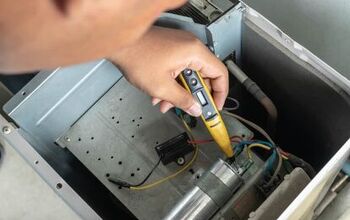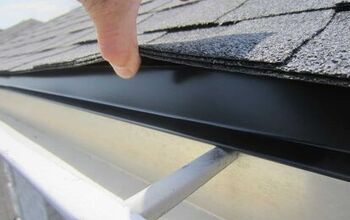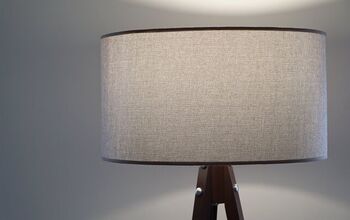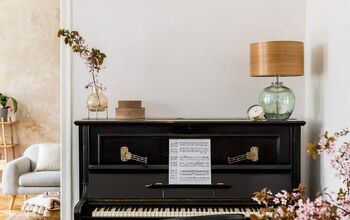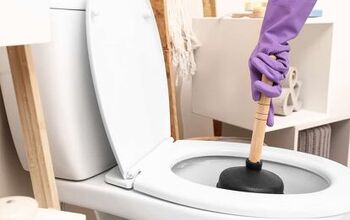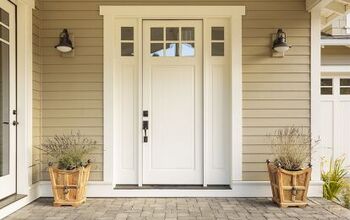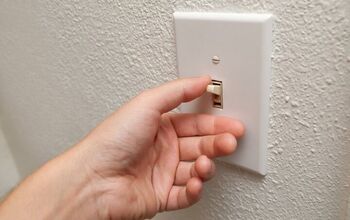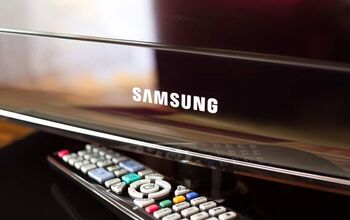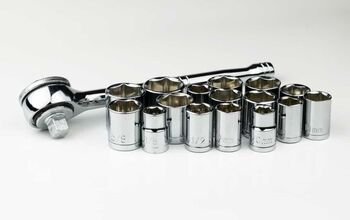How Long Does An Opened Bottle Of Wine Stay Fresh?

Opening a bottle of wine can signal a reason for celebration, the start of the weekend, or something as simple as a cozy night in. In many cases, the wine is finished to the last drop, but sometimes, there is wine left in the bottle at the end of the night. If you frequently find yourself with half-empty bottles, you should know how long the remaining wine will stay fresh.
Open wine stays fresh for between two and six days. Red wine usually lasts between three to six days, while white wine lasts two to four days. Storage location, temperature, the type of wine, and proper sealing all impact how long the wine lasts. Limit wine’s contact with oxygen, heat, and sunlight. Store it in a cool and dark place like your fridge to extend its freshness.
You shouldn’t feel obligated to finish an entire bottle of wine if you don’t want to. But you may feel obligated to if your opened wine keeps going bad. The wine in a opened bottle doesn't last for weeks, but with the proper storage techniques, you can extend its life by several days, which is often enough time to find time and an excuse to finish drinking it.
How Long Does Wine Stay Fresh Once It’s Opened?
In general, you should always finish a bottle of wine within one week of drinking it, as wine rarely stays fresh for more than six days after it’s been opened. Red wine lasts an average of three to six days from the moment it’s opened until it starts to break down and lose its essential flavors.
White wine does not usually last as long as red. Once you open up a bottle of white wine, it lasts between two and four days before, and then starts to lose its flavors. There are, however, many factors that impact how long wine stays fresh once it’s opened.
Factors That Impact How Long Opened Wine Stays Fresh
1. The Type Of Wine
The type of wine you drink has a major impact on how long it will stay fresh. As mentioned above, red wines tend to last longer than white and sparkling wines. As well, some red wines last longer than others.
Cabernet Sauvignon, for example, usually lasts much longer than more delicate red wines like Pinot Noir or even homemade wine. This is because Cabernet has a structure that resists the effects of oxygen because it contains lots of tannins, and high acidity.
2. Level Of Oxygen Exposure
The reason wine loses flavor and even goes bad quickly after you open it is from exposure to oxygen. As soon as wine is opened, it is exposed to air and begins to oxidate. Oxidation is the process of wine slowly breaking down. This causes its nuanced and elegant flavors to disappear, leaving only sour, bitter, and alcoholic notes over time. The more you expose wine to oxygen, the quicker it oxidizes.
3. How Well It Is Sealed And Stored
The diligence with which you seal and store your wine impacts how long it lasts once it’s opened. If you don’t seal your wine properly, air will constantly get in. If you keep your wine bottle casually on a counter, on its side, and with the cork half-on, then expect your wine to expire fast.
4. Wine Tannins And Acidity Levels
Not all wines have the same ingredients and qualities. Some wines, especially bold red wines like cabernet sauvignon and cabernet franc, have high acidity and high tannins. This acts as a barrier against oxidation. More subtle and less acidic wines, in contrast, may oxidize even faster.
5. The Temperature And Storage Location
When you store wine in the home, you should always avoid anywhere warm or with direct sunlight. Heat and UV light are the enemies of wine. Therefore, it should come as no surprise that the temperature and location where you store your wine have an impact on how long it will stay fresh after it’s opened.
6. Alcohol Content
Wine has alcohol, which is one of the main reasons people love it so much. This alcohol content, however, can vary significantly. Some wines have an alcohol content of less than 10%, while others have an alcohol percentage of 17% or higher.
Wines with a higher alcohol content tend to stay fresh longer, as alcohol can slow down the oxidation process.
Seven Ways To Keep Your Opened Wine Fresh For Longer
1. Don’t Keep The Cork Off Longer Than Necessary
Since wine oxidizes and loses flavor when it’s exposed to the air, it’s wise to limit its exposure. Leave the wine with the cork in the bottle, unless you are about to pour a glass. This helps limit the wine’s exposure to oxygen and can keep it fresher for longer.
It’s true that some wine needs to “breathe” before it’s drunk. If you are drinking an aged or full-bodied wine that needs time to open up, pour what you plan to drink into a decanter and seal the rest.
2. Always Store The Bottle Upright
If you want to fit wine in the fridge, you might be tempted to store it horizontally. You should store unopened wine horizontally, but an opened wine bottle should always be stored vertically. Storing wine upright helps limit its exposure to oxygen, and it also reduces the risk of leakage.
3. Keep The Cork On Tight
It’s not enough to ensure the cork is on, it must be sealed tight. Once you have poured your final glass of the evening and are ready to store your wine in the fridge for a day or two, ensure you check the cork. It should be firmly inserted, and shouldn’t come off easily when lightly pulled.
Inspect the cork to see if it is damaged. If it is damaged or impossible to get back in the bottle tightly, use a different wine cork. Never store wine without a cork off or one that is placed loosely on top.
4. Buy A Wine Stopper And Vacuum Sealer
One way to ensure your wine is always properly sealed and stored with minimum oxygen exposure is to buy wine storage tools. Two wine accessories that are essential for anyone who stores opened wine bottles are a wine stopper and a bottle vacuum sealer.
A wine stopper can completely cut off the supply of oxygen to the wine in a bottle. These stoppers often expand and contract, making it possible to fit on any bottle, from a narrow Riesling bottle to a thick champagne bottle. Vacuum sealers use a pump to remove all extra air from the bottle, which helps mitigate oxidation in the bottle.
5. Choose Wines That Are Known To Last Longer
If you are constantly storing half-used wine bottles, consider choosing your wine more strategically. Opt for more red wines, and wines with high tannins, acid, and alcohol content. This combination helps fight off oxidation and will keep your wine fresh for longer once you open it.
6. Store Wine In The Fridge
Perhaps the best way to help your opened bottle of wine last longer is to store it in the fridge. Storing white wine in the fridge may come naturally, as it is served cold. But even red wine will last longer if stored in a cold and dark place like a refrigerator.
Just remember to take it out of the fridge an hour or so before you drink it, so it has time to come up to the proper drinking temperature.
7. Keep Wine Bottle Away From Heat And Sunlight
Remember that wine hates heat, and hates sunlight even more. If you want your wine to last longer, you must keep it away from heat and light. This means not leaving it on a kitchen counter by a window.
If you don’t have space to store it in your fridge, store it in a dark and cold spot in your kitchen pantry where you store spices.
Summing Up How Long Wine Stays Fresh Once It’s Opened
Wine is known for its intricate and subtle flavors. Once you open a bottle of wine, however, you should aim to drink it within a few days. Red wine lasts between three and five days once opened, and white wine lasts less than that.
To ensure your wine maintains its integrity for as long as possible, store it in the fridge, and seal it tightly. Limit its exposure to oxygen, heat, and light to ensure it stays fresh as long as possible.
Related Guides:
- Six Places You Can Store Unopened Bottles Of Wine
- Wine Glass Dimensions (with Drawings)
- How To Open A Wine Bottle With A Lighter (And Other Cork Hacks)

Tom Gaffey is an expert writer who currently resides in Washington D.C. Tom has a passion for real estate and home improvement writing, as well as travel and lifestyle writing. He lived the last twelve years in Hawaii where he worked closely with luxury resorts and event planners, mastering his knowledge of aesthetics and luxury products. This is where he found his passion for home improvement and a keen interest in DIY projects. Currently, Tom resides in Washington D.C, and also working on his debut fiction novel.
More by Tom Gaffey












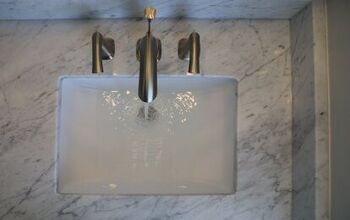
![10 Best Cordless Leaf Blowers – [2022 Reviews & Ultimate Guide]](https://cdn-fastly.upgradedhome.com/media/2023/07/31/9070789/10-best-cordless-leaf-blowers-2022-reviews-ultimate-guide.jpg?size=350x220)

